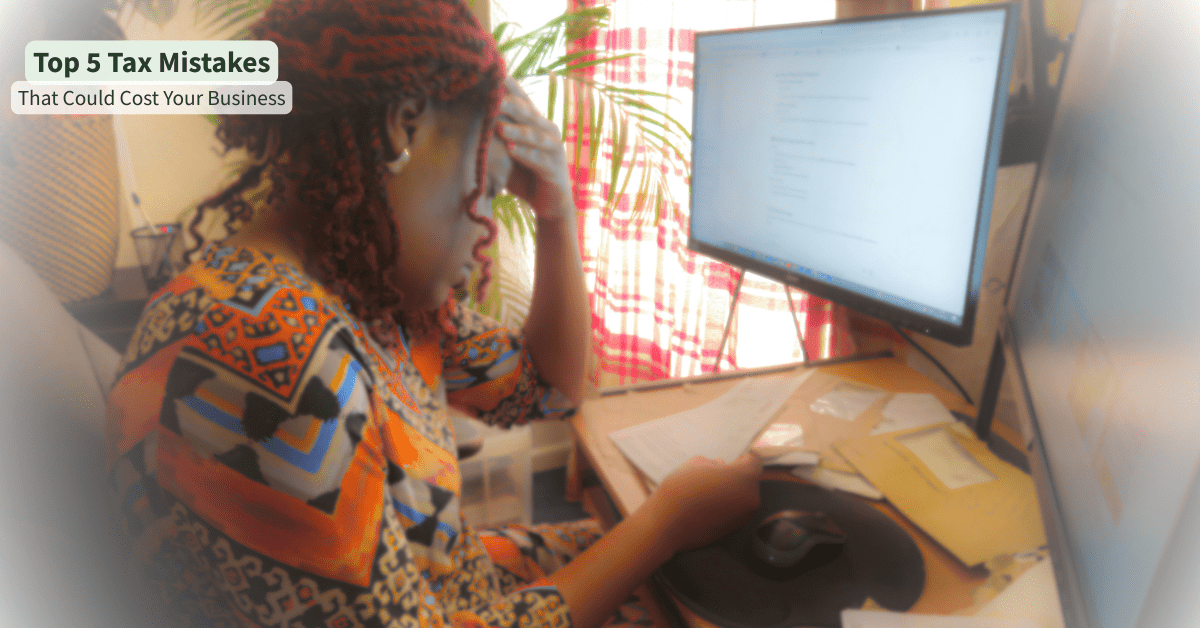Let’s face it, Tax isn’t easy to get right. Sometimes, the rules can seem almost like instructions for assembling a flat-pack — with the inevitable piece missing. It’s important, though, as a business owner, to make sure you don’t fall into one of the many mistakes it’s possible to make with your tax.
Part of that, of course, is to avoid getting into trouble. Failing to stay compliant can result in hefty fines or interest payments. That isn’t all, though. Getting your taxes right is also about protecting your profits.
Here are the top five tax mistakes we see — and how you can avoid them.
Mixing Personal and Business Expenses
If you’re a Sole Trader, there are no hard-and-fast rules about keeping your personal and business bank accounts separate. You wouldn’t actually be breaking the law by running your business from a personal account — it would just leave you with an accounting nightmare.
When it comes to expenses, on the other hand, it’s vital not to mix personal with business. This could result in either claiming for expenses you’re not entitled to, which is likely to land you in trouble, or failing to claim for legitimate expenses, which would mean you’re paying more tax than you need to.
The easiest way to avoid this is to keep your business and personal accounts strictly separate, and never just use whichever is “more convenient”. As far as possible, avoid situations where the expense is hybrid — for instance, diverting to do personal shopping on your way back from a business journey, which can confuse your car mileage claim.
Not Registering for VAT
It’s not compulsory for a Sole Trader to register for VAT, if your annual turnover is below £90,000, but in many cases, it makes financial sense to do so, even if you don’t reach the threshold. Being registered can enable you to claim back the VAT you’ve paid for purchases, ranging from raw materials to business networking.
Working out whether you’ll be better off can be complex, so the best thing is to sit down with your accountant and crunch the figures. And, in any case, watch out for that threshold. If you see any likelihood of your turnover going past the limit, the time to register for VAT is now, or you might get hit with fines.
Missing Deadlines
HMRC isn’t known for being forgiving about missed deadlines. Whether it’s getting your Returns in on time (Self-Assessment, VAT etc.) or whether it’s making payments by the deadline, being late can result in being hit by fines or interest.
The best way to avoid this is to set up automated reminders, which will give you good warning of any deadlines coming up. Or even better, of course, use an Accountant, whose job it is to make sure you have all the information you need — including deadlines.
Overclaiming Expenses
As mentioned earlier, you’re likely to get into trouble with HMRC if you claim expenses you’re not entitled to. It’s not always obvious what you can and can’t claim for. If you’re entertaining a client or supplier, for instance, there are some expenses you can claim and others you can’t.
HMRC have the right to inspect the accounts you used for your Tax Returns, so it’s vital to be able to back up each expense you’ve claimed. Make sure you keep all receipts easily accessible, as well as giving a specific description of the expense — e.g. instead of “coffee”, record “coffee at meeting with John Smith, prospective client”.
🎥 Watch: Not sure what you can claim? That’s one of the biggest tax mistakes — and this video explains how to get it right.
Not Seeking Professional Help
Would you build your own house, or carry out surgery on yourself, rather than relying on professionals? Of course, not — but many people think getting professional help with their taxes is an optional extra. The cost of getting it wrong can be far higher than an Accountant’s fees, though, whether it’s paying Tax you don’t need to or being hit with fines.
A good Accountant will not only save you from making mistakes — they’ll also proactively find legal and ethical ways of ensuring your dealings with HMRC are tilted in your favour.
Related Reading:
Not sure what’s claimable? Read our guide to allowable business expenses here.
Making Tax Digital is changing how you file returns — read our MTD guide here.
To make sure your avoiding costly tax mistakes, book a free discovery call with Grace Certified Accountants today.
